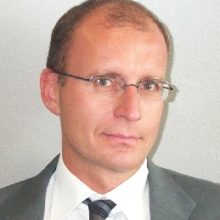
What do you hope to achieve in your time as president?
That ECTA members are satisfied with the service they get from our Association. Especially for the money the pay for the membership.
Enlargement of Responsible Care – until now only for transport services – on Warehouse and Tank Cleaning.
To further build ECTA as the European voice for chemical transports and logistics
What has been ECTA’s greatest achievement?
Responsible Care. ECTA is the first association that has launched a European wide Responsible Care programme in the logistics field. So far the Responsible Care scheme is only treated on a national level.
ECTA applies the RC Scheme to its RC member companies in all European countries in the same transparent manner, based on self assessment combined with objective and externally verified data on safety management and improvement processes.
What do you see as the Association’s biggest challenges at the moment and how do you plan to overcome them?
There are challenges on the market which our members face. The financial situation of a serious number of countries in the Eurozone, stagnation in volumes, driver shortage, CO2-reduction, development of intermodal solutions.
The Association wants to give its members help on all these topics by exchanging data, facts, experience, further standardisation and harmonisation (e.g. calculation of CO2 emissions) etc.
What are the benefits of becoming a member of ECTA?
Already today ECTA members carry out over 70% of all chemical shipments in Europe and all major players in transport and logistics of chemical products are members. The benefit is to gain from the experience, expertise and joint efforts in working groups (also in close collaboration with CEFIC) from a large industry of service providers.
How important is responsible care and increased sustainability in chemical transport?
It is key!!
Are we on track to meet carbon emission reductions by 2020?
If I would be able to answer this question with a yes or no you would no longer find me in my job. Perhaps somewhere on an islands of the Maledives!
The point is that we do not find a harmonised – across industries – calculation of CO2 emissions in transport. So whatever is reported is close to a good estimation. My personal opinion is not to count every single tonne of CO2, which is not possible as explained before.
We have to concentrate on transport modes which have by definition less carbon emissions, meaning we have to use more and more intermodal solutions (train, short-sea, barges, etc. in combination with a flexible road service at both ends of the logistic chain. The EU White paper sets one important goal. Up to 2030 30% of all transport with a distance of more than 300 km has to be carried out intermodally!
This is the only way to reach the targets.
What more can be done in this area?
Investments in rail infrastructure, terminals (rail and short sea) and rail equipment. The highest priority is to overcome the actual situation of interoperability of rails in Europe. Railway locomotives are not able to drive outside their country. The reason are different voltages in the individual countries of the EU and the signalisation which is in the local language. This jeopardises the productivity and efficiency of railway services.
Does the increased costs of responsible care and sustainability not affect Europe’s competitiveness?
Investments in RC and Sustainability have a payback. With such actions you increase the company’s performance. Less incidents/accidents save money!
Europe’s competitiveness suffers of inefficiency of rail services – see above – the crisis with the Euro. But I do not see transport as a reason.
What are the implications for European transport operators in the rise of China and the Middle East as major petrochemical producer regions?
The major players follow the petrochemical producers. Just to name some of them Hoyer, Talke, Bertschi, Schmidt, De Rijke, have operations in this part of the world.
